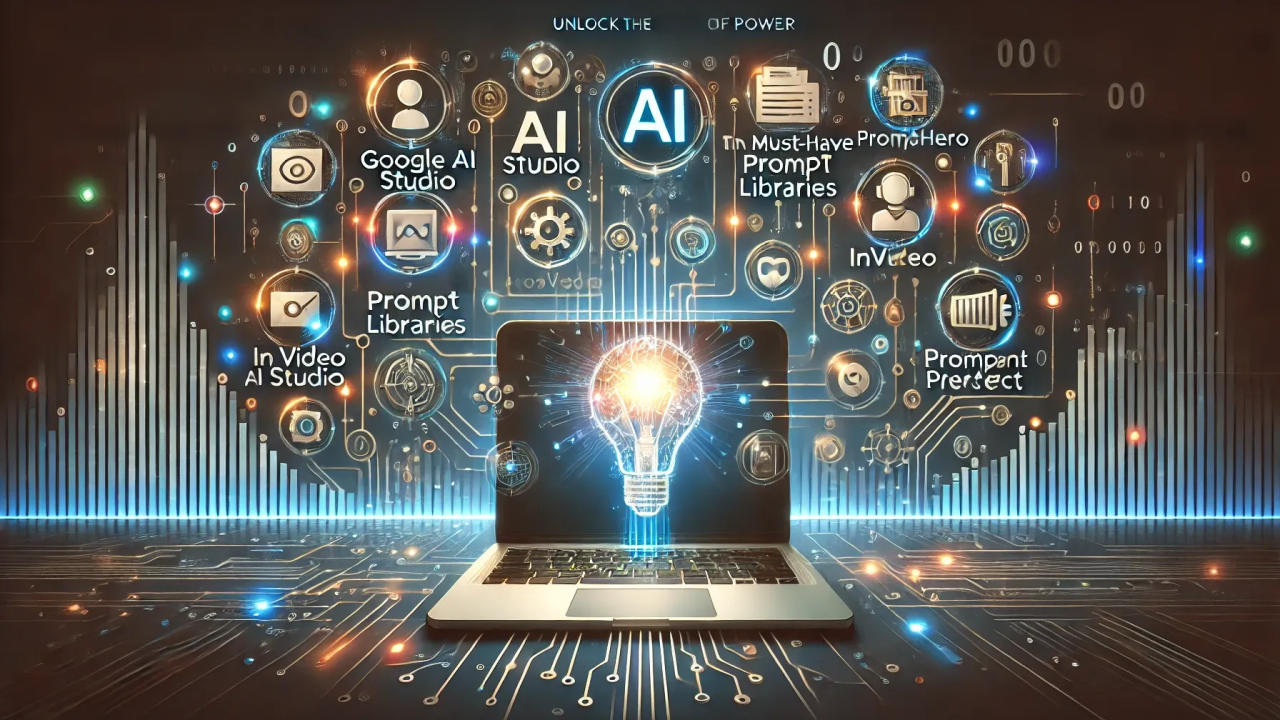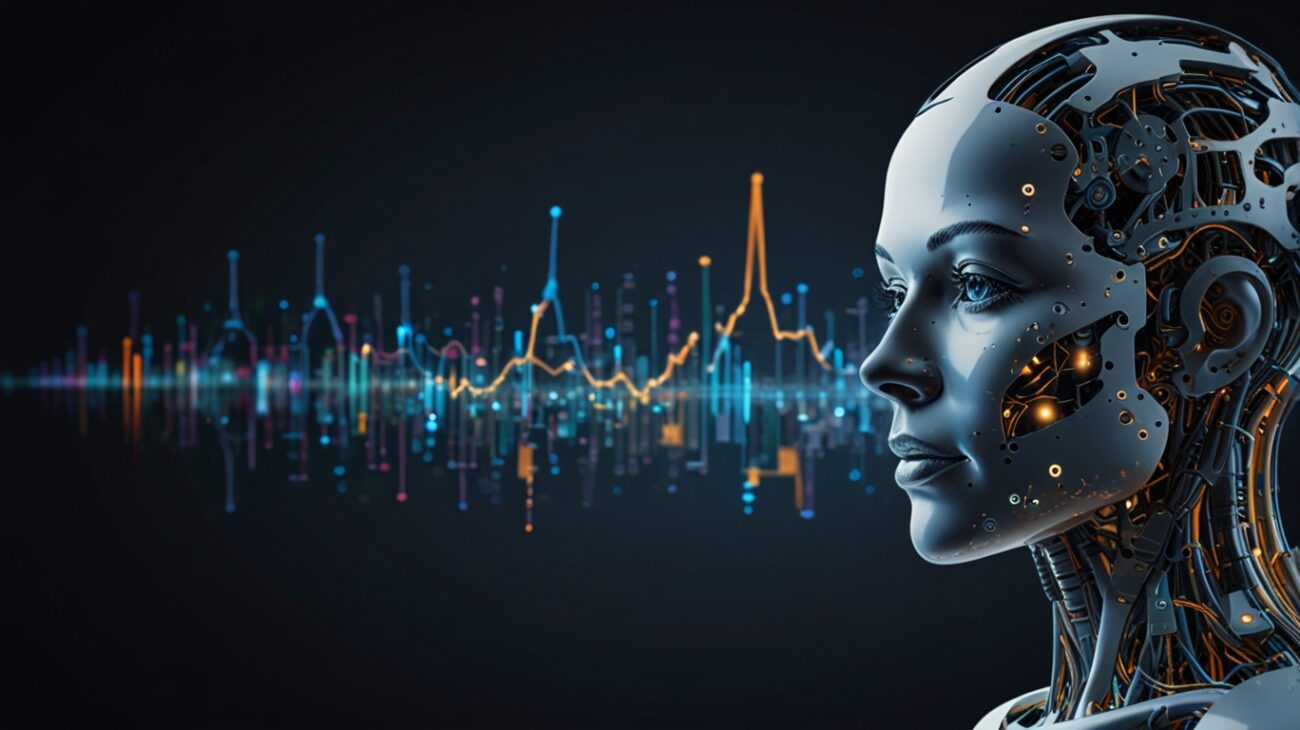Introduction to AI Tools

Artificial Intelligence (AI) has emerged as a transformative force in contemporary society, influencing various aspects of daily life and numerous industries. At its core, AI refers to the simulation of human intelligence processes by computer systems, encompassing techniques such as machine learning, natural language processing, and robotics. These technologies empower applications that automate tasks, analyze data, and, in some cases, mimic human cognitive functions.
The proliferation of AI tools is a testament to the rapid advancements in this field. From virtual assistants like Siri and Alexa that help in managing daily schedules to more sophisticated systems capable of analyzing complex datasets and predicting outcomes, AI technology is designed to enhance productivity and streamline everyday processes. The applications of AI tools extend to sectors such as healthcare, finance, education, and entertainment, demonstrating their versatility and potential to enrich lives.
Particularly significant is the role of AI in augmenting creativity and improving overall well-being. Creative professionals increasingly incorporate AI-driven applications to generate ideas, create art, or compose music, thus expanding creative horizons. Meanwhile, mental health tools powered by AI offer support and resources to individuals, promoting emotional wellness in an increasingly fast-paced world.
The ongoing evolution of AI tools signifies a shift in how individuals can interact with technology, adopting solutions that cater specifically to personal and professional needs. As these tools become more accessible, they offer a unique opportunity for people to leverage technology in a way that enhances their livelihoods. This integration of intelligent systems into daily routines is expected to lead to more efficient, innovative, and fulfilling experiences in life.
Productivity Boosters: AI in Task Management
In today’s fast-paced world, the integration of artificial intelligence (AI) into task management has become essential for enhancing productivity. By utilizing AI tools, individuals can streamline their workflow, ensuring that they make the most of their time and efforts. One of the primary benefits of AI in this context is its ability to assist in scheduling tasks effectively. Tools like Todoist and Trello leverage AI algorithms to prioritize and organize tasks based on deadlines, complexity, and even individual preferences, thus enabling users to focus on what matters most.
Another significant area where AI excels is in reminder systems. Applications such as Microsoft To Do and Google Calendar use AI to analyze user behavior and suggest optimal times for task completion, thereby minimizing the chances of missed deadlines. With these intelligent tools, users are not only reminded of their responsibilities but can also receive recommendations for when to tackle specific tasks, based on their historical performance and productivity patterns. This personalized approach fosters a more efficient work environment.
Furthermore, automation is a game-changer in task management. AI-powered tools like Zapier allow users to connect various applications, automating repetitive processes. By setting up workflows that trigger actions based on specific criteria, individuals can eliminate mundane tasks, freeing up time for more impactful work. For instance, automating data entry from emails into spreadsheets can significantly reduce human error and save valuable hours in a busy schedule.
Incorporating AI into task management not only enhances organization but also promotes better time management. As the demand for efficient use of time increases, these tools provide scalable solutions that adapt to the unique needs of each user. Thus, embracing AI in task management can lead to significant improvements in productivity and overall effectiveness in both personal and professional endeavors.
Creative Assistants: AI in Content Creation
The realm of content creation has evolved significantly with the advent of artificial intelligence (AI) tools, which serve as invaluable creative assistants for writers, marketers, and content creators alike. These sophisticated tools leverage advanced algorithms and machine learning to aid in the conceptualization, drafting, and refinement of various forms of content. By offering support throughout the content creation process, AI tools empower individuals to realize and express their creative potential effectively.
One of the key advantages of utilizing AI in content creation is its ability to generate ideas and prompts based on user inputs. Tools like OpenAI’s ChatGPT and Jasper can help writers overcome creative blocks by suggesting topics, headlines, and even entire paragraphs tailored to specific themes or niches. These AI-assisted brainstorming sessions can significantly enhance the ideation process, enabling creators to explore diverse perspectives and angles that they may not have considered otherwise.
Furthermore, AI tools also provide valuable functionalities for improving writing quality. Platforms such as Grammarly and ProWritingAid utilize AI-driven algorithms to offer real-time suggestions on grammar, style, and tone, ensuring that the final output is polished and professional. This not only saves time during the editing process but also allows content creators to focus on the message and essence of their work without getting bogged down by technical details.
In addition to generating ideas and enhancing writing quality, the efficiency of AI tools streamlines the content creation process. Scheduling and management applications integrated with AI capabilities, such as Schedule and Trello, assist teams in coordinating their workflow and maintaining deadlines, thus fostering collaboration and accountability. By automating routine tasks, these tools free up time for creators to engage more deeply with the creative aspects of their projects.
In conclusion, the integration of AI in content creation is transforming the landscape, providing writers and marketers with powerful tools to amplify their creativity. By harnessing the capabilities of these creative assistants, individuals can unlock their true potential and produce compelling content that resonates with their audiences.
Well-being and Health: AI in Personal Development
The integration of artificial intelligence (AI) in personal development is transforming lives, especially in the areas of health and well-being. With AI-driven tools readily at your fingertips, you have the power to reach your fitness and mental health goals like never before. Consider the incredible potential of fitness apps that harness AI technology; they create personalized workout plans tailored just for you! By analyzing your fitness levels, goals, and preferences, these applications design exercise regimens that fit your unique journey. As you progress, fitness AI adapts to keep you challenged and engaged, empowering you to push beyond your limits while minimizing injury risks. Embrace the future of fitness and let AI guide you on your path to success!
In addition to physical fitness, mental well-being has also seen the emergence of AI-powered applications designed to promote mindfulness, meditation, and emotional health. These tools often offer personalized meditation practices based on user input and preferences. For instance, users can select themes, durations, and types of meditation, and the AI then recommends suitable sessions. Moreover, AI chatbots are becoming increasingly popular in providing counseling services, offering immediate support and resources for individuals struggling with stress, anxiety, or depression. Such applications serve as an accessible means for self-care, enabling individuals to explore their mental health in a comfortable environment.
The holistic approach of incorporating AI tools into personal development aligns physical health and mental well-being, fostering a comprehensive journey toward enrichment. Through continuous learning and adapting to user feedback, these AI applications can provide invaluable support in personal growth. Users are empowered to take charge of their well-being, creating a personalized experience that reflects their aspirations. As such, AI’s role in shaping healthier lifestyles is becoming increasingly evident, highlighting the potential of these innovations in enriching lives and promoting overall health.
Financial Management: AI in Budgeting and Investing
In the realm of personal finance, the advent of Artificial Intelligence (AI) has revolutionized how individuals manage their budgets and investments. Various AI tools have emerged, offering innovative solutions for better financial management. Budgeting apps, powered by machine learning algorithms, analyze users’ spending habits and provide actionable insights that can lead to improved financial health. These applications not only track expenses but also categorize spending patterns, allowing users to visualize where their money goes each month.
Users can leverage these insights to identify areas where they might be overspending and adjust their habits accordingly. For example, an AI-driven budgeting app might highlight excessive dining expenses or subscriptions that are seldom utilized. By utilizing these suggestions, individuals can create a more tailored budget that aligns with their financial goals. Additionally, some platforms incorporate features that remind users of upcoming bills, ensuring timely payments and reducing the likelihood of incurring late fees.
On the investment front, AI tools are transforming traditional investing practices. Many investment platforms utilize advanced algorithms to analyze financial markets and interpret large volumes of data at unprecedented speeds. This technology enables them to offer personalized investment advice based on an individual’s risk tolerance, investment goals, and market conditions. By continuously learning from market trends, these AI systems can suggest optimal investment portfolios and strategies, empowering users to make informed decisions.
Moreover, certain AI-powered investment tools provide real-time analysis and alerts about significant market shifts. This level of insight can help investors capitalize on opportunities or mitigate losses. As financial management continues to evolve, the integration of AI tools into budgeting and investing practices underscores the transformative potential of technology in enhancing individuals’ financial lives.
AI-Powered Educational Tools for Diverse Learning Styles
The landscape of education is undergoing a remarkable transformation, propelled by artificial intelligence (AI). This technology is reshaping how we acquire knowledge, providing personalized learning experiences tailored to individual needs. AI-powered educational tools cater to various learning styles, allowing students to navigate their educational journeys more effectively.
One of the standout features of such platforms is their ability to offer personalized learning experiences. This customization is achieved through intelligent algorithms that analyze learners’ strengths, weaknesses, and preferences. For instance, platforms like Khan Academy and Coursera utilize AI to adapt the curriculum which aligns with the learner’s pace and style. By assessing a student’s progress and engagement, these systems can recommend specific resources or courses, ensuring a more targeted and effective learning path.
In addition to personalized experiences, adaptive quizzes play a crucial role in reinforcing knowledge. AI-driven testing tools adjust the difficulty of questions based on a learner’s performance in real-time, creating an optimal challenge. This adaptive learning approach helps maintain engagement while effectively bridging knowledge gaps. Furthermore, applications such as Duolingo have revolutionized language acquisition by integrating gamified elements with AI, creating an interactive and enjoyable learning atmosphere that retains user interest.
The accessibility of education is also significantly improved by AI tools. Many of these platforms provide resources in multiple languages and formats, breaking down barriers for learners worldwide. Whether via interactive tutorials or comprehensive video lectures, AI ensures that everyone can access quality education at their convenience. This inclusivity not only enhances individual learning experiences but has the potential to uplift communities by expanding educational opportunities.
In essence, as we explore the integration of AI in learning and education, it becomes clear that these innovative tools play an essential role in enhancing knowledge acquisition for diverse audiences. By catering to various learning styles and preferences, AI offers a more inclusive, engaging, and effective educational experience.
Home Automation: AI for Smart Living
In recent years, the integration of artificial intelligence (AI) in home automation has transformed the way we interact with our living spaces. Smart devices powered by AI offer innovative solutions that enhance home security, optimize energy consumption, and deliver unparalleled convenience, ultimately contributing to a more efficient and connected living environment. With the rise of the Internet of Things (IoT), homeowners can now connect various devices through centralized systems, allowing for seamless communication and automation.
One of the most significant benefits of AI in home automation is the ability to enhance security measures. Smart security systems equipped with AI technologies can monitor live feeds, detect unusual activities, and send alerts to homeowners in real time. For instance, AI algorithms can differentiate between routine movements and potential intruders, ensuring that security alerts are both accurate and relevant. Furthermore, features such as facial recognition allow for personalized security protocols, granting access to known individuals while keeping unwanted guests at bay.
Another area where AI significantly impacts home automation is in energy consumption. Smart thermostats, lighting systems, and appliances utilize machine learning to adapt to the habits of occupants. By analyzing usage patterns, these AI-driven solutions can adjust settings automatically, enhancing energy efficiency and reducing utility bills. For example, smart thermostats can learn when homeowners typically leave and return, adjusting the temperature accordingly to provide comfort while conserving energy during unoccupied hours.
Additionally, the convenience factor provided by voice-activated assistants cannot be overlooked. Devices like Amazon Alexa or Google Assistant enable users to control various smart home gadgets through simple verbal commands. This hands-free capability means that tasks such as adjusting lighting, setting the thermostat, or even locking doors can be achieved without the need for manual intervention, promoting a more convenient lifestyle.
AI for Business: Enhancing Entrepreneurship
In the modern business landscape, the integration of artificial intelligence (AI) tools has proven to be a game-changer for entrepreneurs and small businesses. These AI technologies streamline operations, engage customers more effectively, and facilitate informed decision-making, empowering businesses to unlock their full potential. One of the primary areas where AI can significantly impact is customer relationship management (CRM). With AI-driven CRM systems, businesses can automate marketing efforts, nurture leads, and provide personalized customer experiences with relative ease.
AI-powered CRM tools can analyze consumer behavior, allowing entrepreneurs to tailor their marketing strategies. They process vast amounts of data to identify trends and preferences, thereby enhancing customer engagement. Moreover, automating routine tasks such as email follow-ups and customer inquiries frees up valuable time for small business owners to focus on core operations. This shift towards automation not only improves efficiency but also allows businesses to maintain consistency and accuracy in customer interactions.
In addition to CRM solutions, entrepreneurs can benefit significantly from AI-enhanced inventory management tools. These tools utilize predictive analytics to forecast demand accurately, optimize stock levels, and reduce excess inventory. By leveraging AI to manage inventory, small businesses can prevent stockouts and overstock situations, which can be pivotal for maintaining cash flow and customer satisfaction.
Another critical aspect of enhancing business operations is the application of AI-driven analytics. These systems can sift through vast datasets to unveil actionable insights, helping entrepreneurs make informed decisions based on real-time information. By harnessing the power of AI analytics, entrepreneurs can better understand market dynamics, segment their target audiences, and make data-backed strategic decisions.
The amalgamation of AI technologies in business is not just a trend; it is becoming essential for competitiveness in today’s fast-paced market. As entrepreneurs continue to explore and implement these powerful tools, they will undoubtedly experience enhanced operational efficiency, improved customer relationships, and ultimately, greater success in their ventures.
Conclusion: Embracing AI for a Richer Life
As we navigate through an era increasingly influenced by artificial intelligence, it becomes essential to recognize the immense potential these tools hold to enhance our lives. Throughout this blog post, we have explored a variety of AI applications, each offering unique benefits that can aid in personal and professional development. From productivity tools that streamline daily tasks to creative platforms that inspire innovation, embracing AI can significantly enrich our experiences and outcomes.
The integration of AI into our lives is not merely a luxury but a necessity for staying competitive in an evolving landscape. The tools discussed provide solutions that cater to our diverse needs—whether enhancing efficiency, fostering creativity, or improving communication. By incorporating these powerful AI tools into our routines, we open ourselves to new possibilities, enabling us to reach our full potential.
Encouraging an openness to technology is vital, as the digital landscape continues to transform at an unprecedented pace. Being willing to explore and experiment with these systems can lead to personal growth, increased productivity, and ultimately, a more fulfilling life. With the continual advancements in AI, the tools available today are just the beginning of what these technologies can offer. Engaging with them not only provides immediate benefits but also prepares us for future innovations that promise to reshape how we live and work.
In summary, the journey towards maximizing our potential through AI is a forward-thinking commitment. By adopting these tools and integrating them into our daily lives, we pave the way for a richer, more successful future. The time to embrace artificial intelligence is now; let us take the step forward together, unlocking the opportunities that await us.




